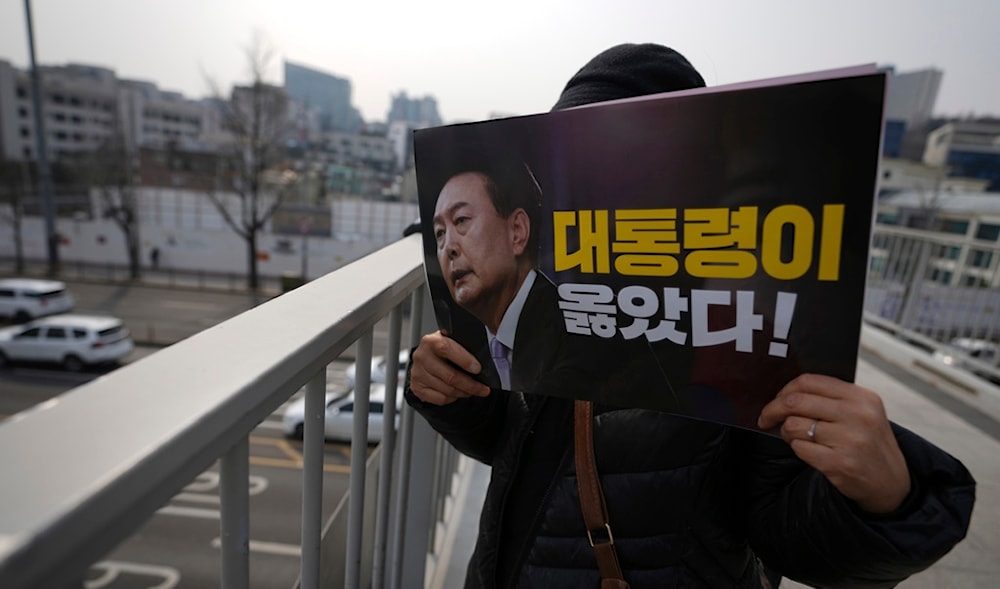South Korean court cancels impeached President Yoon's arrest
A South Korean court has found that Yoon's indictment was filed after his detention lapsed, which prompted the president's release.
-

A supporter of impeached South Korean President Yoon Suk Yeol holds a sign near the presidential residence in Seoul, South Korea, Friday, March 7, 2025. The letters read, "President was right." (AP)
Impeached President Yoon Suk Yeol's arrest was dropped by a South Korean court on Friday, permitting his release.
The suspended president's legal team submitted a petition last month to annul his arrest, contending that his detention was unlawful due to the prosecution's delay in filing charges.
"It is reasonable to conclude that the indictment was filed after the defendant's detention period had expired," a document by the Seoul Central District Court read.
The court further noted that to maintain procedural transparency and dispel any concerns about the legitimacy of the investigation, it would be appropriate to rule in favor of canceling the detention.
"To ensure procedural clarity and eliminate any doubts regarding the legality of the investigative process, it would be appropriate to issue a decision to cancel the detention," it added.
Despite the ruling, Yoon's lawyer said the president remains in custody for now.
"Even if the court decides to cancel the detention, the defendant is not immediately released," said lawyer Seok Dong-hyeon.
Will Yoon remain in office?
Yoon's criminal case is independent of his impeachment trial. The Constitutional Court, the nation’s highest judicial body, is set to rule in the coming weeks on whether to confirm his impeachment or restore him to office.
His brief suspension of civilian rule triggered political turmoil in democratic South Korea, leading to his ousting by parliament in December 2024.
On December 3, Yoon's attempt to suspend civilian governance threw the country into political unrest. The decision, which lasted just six hours, was overturned when lawmakers stood up to armed soldiers in parliament and voted against it.
He was impeached shortly after and, earlier in January, became the first sitting South Korean president to be arrested. This followed a week-long standoff at his residence, where his elite personal security detail resisted efforts to apprehend him.
Since his arrest, he has been held at the Seoul Detention Center. The formal indictment with detention had ensured that he would remain in custody until his trial, which was supposed to take place within six months.
Read more: Impeached South Korean President appears for arrest warrant hearing

 2 Min Read
2 Min Read








